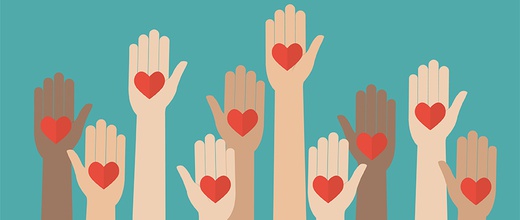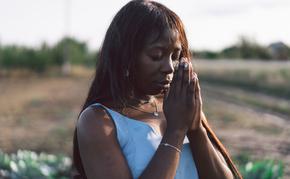The views expressed in our content reflect individual perspectives and do not represent the authoritative views of the Baha'i Faith.
Five years ago, I voted in a Baha’i election for the first time—a joyous and unique experience that taught me a lot about the Baha’i election and its new spirit.
I have felt a great responsibility since then to participate in the Baha’i election every year, not only to fulfill my sacred duty to my faith community, but to contribute to the betterment and unity of the wider community, as well. Baha’i elections are different—they can contribute to uniting communities and bringing people closer to work towards a common goal. Baha’is have no clergy—the authority in their Faith comes directly from the Baha’i writings themselves, and through democratically-elected institutions.
Every year, to commemorate the anniversary of the day the Baha’i Faith began, Baha’is gather in their local communities to democratically elect nine members of the community to serve in an administrative body called a Local Spiritual Assembly:
These Spiritual Assemblies are shining lamps and heavenly gardens, from which the fragrances of holiness are diffused over all regions, and the lights of knowledge are shed abroad over all created things. From them the spirit of life streameth in every direction. – Abdu’l-Baha, Selections from the Writings of Abdu’l-Baha, p. 80.
Baha’is see the election as a vital spiritual duty—and also as a matter of conscience:
I feel I must reaffirm the vital importance and necessity of the right of voting—a sacred responsibility of which no adult recognized believer should be deprived … This distinguishing right which the believer possesses, however, does not carry with it nor does it imply an obligation to cast his vote, if he feels that the circumstances under which he lives do not justify or allow him to exercise that right intelligently and with understanding. This is a matter which should be left to the individual to decide for himself according to his own conscience and discretion … – Shoghi Effendi, Messages to America: Selected Letters and Cablegrams Addressed to the Baha’is of North America 1932-1946, pp. 3-4.
Baha’i elections take place during the festival of Ridvan (which means Paradise), the twelve-day period each year when Baha’is celebrate Baha’u’llah’s declaration of the Baha’i revelation. The election meeting usually starts with a devotional program and then continues with consultation. Then, without any slate of candidates, nominations or campaigning, the Baha’is silently cast their ballots in a refined spiritual atmosphere. Completely different from politicized elections, Baha’i voters conscientiously:
… consider without the least trace of passion and prejudice, and irrespective of any material consideration, the names of only those who can best combine the necessary qualities of unquestioned loyalty, of selfless devotion, of a well-trained mind, of recognized ability and mature experience. – Shoghi Effendi, Baha’i Administration, p. 88.
After the votes have been cast, the community reviews what has been done throughout the year and what needs to be done in the future. Election day gives everyone an opportunity to reflect on community activities such as an expansion of service projects, consult about various essential local matters and make their voices heard. Each person has an equal voice.
Any member of the Baha’i community who is 21 and older can vote—and be elected. People are advised to pray and then vote for those who they consider the most qualified. Qualifications of individuals are not associated with their social rank or gender, but Baha’is are urged to elect gender-, age- and racially-diverse members to their Spiritual Assemblies.
However—Baha’is don’t discuss individuals or their qualifications or personalities before an election, and all ballots remain confidential:
… reference to personalities before the election would give rise to misunderstanding and differences. What the [Baha’is] should do is to get thoroughly acquainted with one another, to exchange views, to mix freely and discuss among themselves the requirements and qualifications for such a membership without reference or application, however indirect, to particular individuals. We should refrain from influencing the opinion of others … – Shoghi Effendi, from a letter to the Spiritual Assembly of Akron, Ohio, published in the United States Baha’i Newsletter, June 1927, no. 18, p. 9.
The unique, purely democratic qualities of the Baha’i election brings friends and community members together in a united way to fulfill their sacred duty in a common space. They pray, reflect and elect the most qualified members without trying to influence the opinion of others. Completely different from other kinds of contentious elections in the public sphere, the Baha’i election attempts to quietly and carefully choose those who will selflessly serve the entire community.
But those elected do not ascend to any lofty or exalted position, nor do the Assembly members have any individual authority over any other members of the community. The Assembly makes its decisions jointly, and the Baha’i community understands that they do so in the spirit of love and selfless service to the community. In fact, serving on a Local Spiritual Assembly, or any other Baha’i administrative body, is not a position of power—instead, it is a position of service.

















Comments
Sign in or create an account
Continue with Facebookor